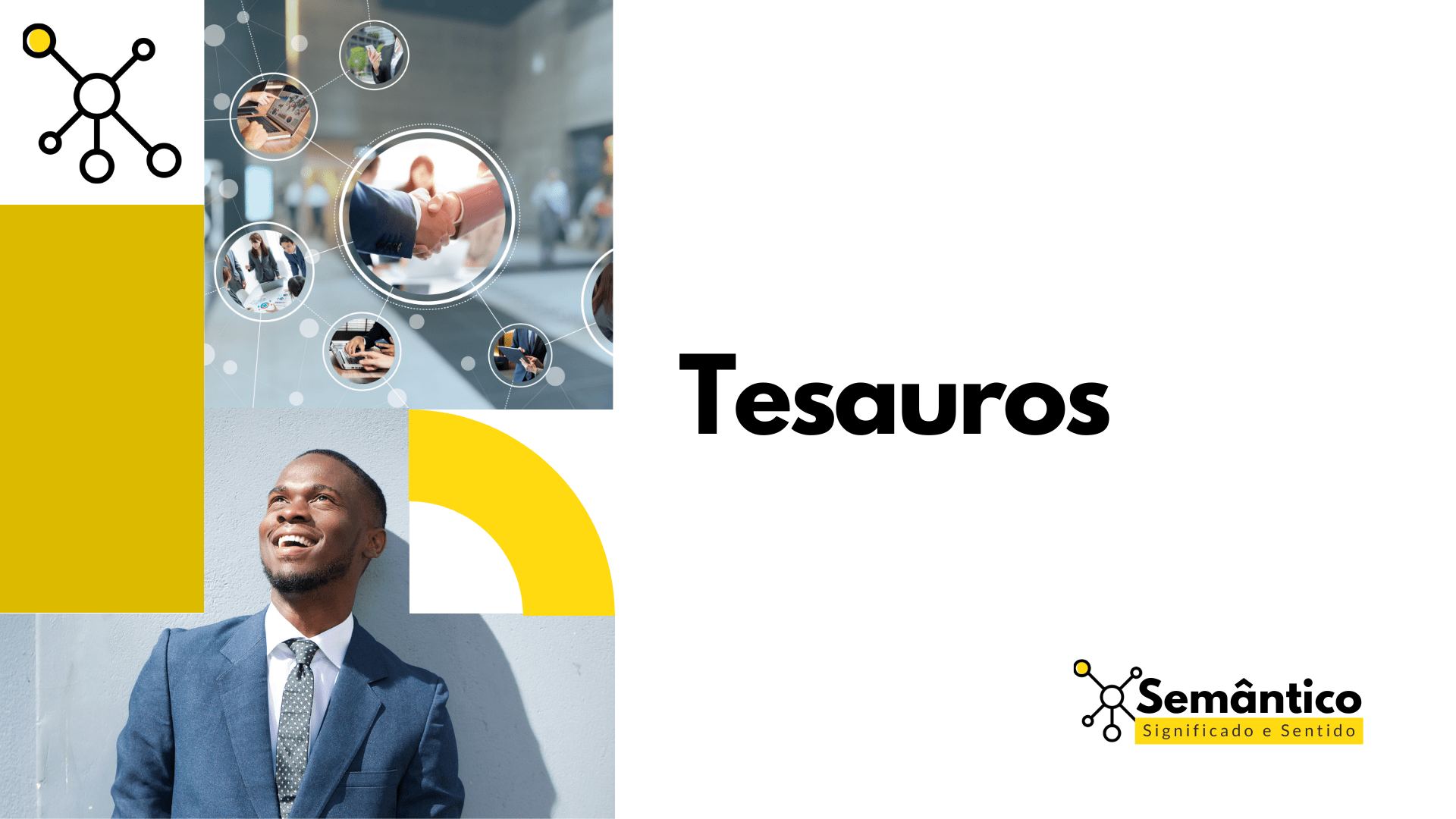Tesauros
Um tesauro (do latim thesaurus, que significa “tesouro”) é uma ferramenta de vocabulário controlado e estruturado, utilizada para organizar o conhecimento e padronizar a terminologia em uma determinada área. Diferente de um dicionário, que oferece definições de palavras, o objetivo principal de um tesauro é listar termos e estabelecer as relações semânticas entre eles, como sinônimos (termos equivalentes), antônimos (termos opostos) e relações hierárquicas (termos mais amplos e mais específicos) e associativas (termos relacionados). Ele funciona como um mapa conceitual, permitindo a tradução da linguagem natural dos usuários para uma linguagem sistematizada, facilitando a indexação e a recuperação precisa da informação.
A estrutura de um tesauro é projetada para resolver problemas de ambiguidade e variedade terminológica, garantindo que um mesmo conceito seja representado de maneira consistente. Por exemplo, em um sistema de busca, um usuário pode procurar por “SEO para e-commerce”, enquanto o conteúdo relevante pode estar indexado sob o termo “otimização de lojas virtuais”. Um tesauro conecta esses termos, assegurando que ambos levem ao mesmo conjunto de resultados relevantes. Essa organização é tipicamente construída sobre três tipos principais de relações: a relação de equivalência (USE e Utilizado Para – UP), a relação hierárquica (Termo Genérico – TG e Termo Específico – TE) e a relação associativa (Termo Relacionado – TR).
No contexto de SEO Semântico e arquitetura da informação, os tesauros desempenham um papel vital na organização de websites e na otimização de conteúdo para os mecanismos de busca. Ao estruturar a informação com base em um vocabulário controlado, os criadores de conteúdo podem garantir que suas páginas cubram um tópico de forma abrangente, conectando conceitos relacionados e melhorando a experiência do usuário. Para os buscadores, essa organização semântica facilita a compreensão do contexto e da profundidade do conteúdo de uma página, o que pode resultar em uma melhor classificação para uma gama mais ampla de consultas relevantes.
Em resumo, o tesauro é um instrumento essencial para a gestão da informação e do conhecimento, atuando como uma ponte entre a linguagem humana e os sistemas de computador. Ao padronizar e interligar termos, ele aumenta a eficiência da recuperação da informação, enriquece a contextualização de dados e serve como um alicerce para estratégias avançadas de SEO e para a construção de uma web mais organizada e semanticamente inteligente.
Fontes:
- Archive.org. Diretrizes para a construção e desenvolvimento de tesauros monolíngues (ANSI/NISO Z39.19). Acesso em: 26 set. 2025.
- Diciotan.” O que é Tesauro? Dicionário de Termos da Arquivologia e Diplomática. Acesso em: 26 set. 2025.
- Pontifícia Universidade Católica de Campinas. Tesauro: uma ferramenta para organização do conhecimento. Disponível em: https://www.puc-campinas.edu.br/biblioteca/tesauro-uma-ferramenta-para-a-organizacao-do-conhecimento/. Acesso em: 26 set. 2025.
- UX Collective Brasil. Taxonomia, Ontologia e Tesauro: qual a diferença e importância para UX? Disponível em: https://brasil.uxcollective.com/taxonomia-ontologia-e-tesauro-qual-a-diferen%C3%A7a-e-import%C3%A2ncia-para-ux-c5188f57eb1e. Acesso em: 26 set. 2025.




Publicar comentário